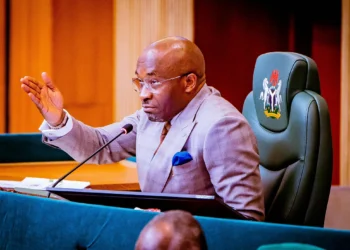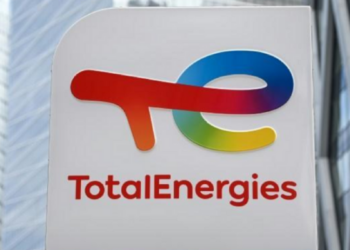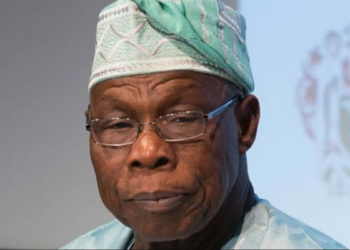Another dismal monthly oil production count, another deficit behind the production quota granted by OPEC+, and another missed opportunity to take advantage of high oil prices dominating the international oil market. On Wednesday, Oil prices hit $88 per barrel, a price level not seen since 2014.
In December 2021, crude oil production in Nigeria fell below 1.2 million barrels per day – another underperformance in production that is beginning to feel like a normal occurrence.
Nigeria’s OPEC+ quota, which covers only crude oil and not condensates, is around 1.614 million barrels per day +/-, and Nigeria’s production capacity is closer to 2.2 million barrels per day according to Timipre Sylva, Nigeria’s Oil Minister.
For readers unfamiliar with oil matters, a quota is an OPEC-imposed trade restriction that limits the number of barrels that a country can produce during a particular period. The reason for quotas is to ensure the oil markets are not oversupplied.
If we do the math, taking out the recent month production numbers (1.2 million barrels b/d) from Nigeria’s OPEC+ quota allowance (1.614 million barrels b/d), that’s 400,000 barrels per day. That’s leaving money on the table.
With today’s prices, that’s a $35,200,000 per day loss. That’s about the same amount, the National Economic Council revealed was left in Nigeria’s Excess Crude Account ($35,868,086.40) as at 17th January 2022.
In a month, that’s $USD 1.09 billion loss – a few million dollars shy of the gross monthly distribution by the Federation Account Allocation Committee (FAAC) distributed to the three tiers of government in December 2021- NGN676 billion ($USD1.65 billion).
But let’s look at the Excess Crude Account.
The ECA is a savings account retained by the Federal Government and is funded by the difference between the market price of crude oil and the budgeted price of crude oil as contained in the appropriation bill.
Here is a snapshot of the decline in the ECA balance.
Since Oil is the lifeblood of Nigeria’s economy, then Nigeria should bleed the life out of Oil by maximizing her full production capacity. Oil revenue has dropped as a result of low production and there is a burgeoning need to address it.
Key Nigerian grade Forcados was disrupted last year until Shell lifted force majeure on loadings in September last year. Industry sources said the suspension of exports was due to an oil spill near the Forcados terminal.
Other Nigerian crudes such as Bonny Light, Escravos, and Qua Iboe have also faced production issues in recent months due to operational and technical reasons.
Growing threats by militants to renew attacks on oil infrastructure in the restive Niger Delta still remain a concern.
Oil has been in the over $50 region for over a year and yet the external reserves, the Excess crude account, Nigeria Sovereign Investment Authority (NSIA) fund have not increased significantly as they should have. Any increase witnessed in the reserves is largely due to inflows from the Eurobond proceeds and the Special Drawing Rights (SDR) allocation to Nigeria by the International Monetary Fund (IMF).
So, when Crude oil production in Nigeria fell below 1.2 million barrels per day in December 2021 from 1.28 million barrels per day in November 2021, a deeper introspection in data obtained from the Nigerian Upstream Petroleum Resources, Commission showed that the highest volume of crude oil produced last year was about 1.43 million barrels per day (in March), compared to the projected production level of 1.86 million barrels per days in the 2021 budget.
In September 2021, Nigeria requested a higher production quota under the OPEC+ accord, claiming that technical problems that have hampered its output “will soon be resolved.” But the numbers don’t lie – Nigeria has failed to reach 1.614 million barrels per day since then.
Now the thought of concessioning to China is inconceivable and admittedly click-bait but if you look at the idea through the prism of Nigeria’s inefficiencies – it is a rational take as the only new-functional infrastructure Nigeria has was built and funded by the Chinese. Also, the majority of our loans come from the Chinese. Perhaps a local private-sector concession would make more sense for sovereignty and national interest alarmists. But the pace at which the Dangote refinery has stalled is concerning. The country needs more players.
The Nigerian Petroleum Industry Act has brought fresh life and the needed impetus into the Nigerian oil sector that the country desperately needs. In addition to this, the industry needs a total holistic overhaul with new players who would give revenue, royalties, and commission to the Federation account. New players that would be accountable to the public with mandatory reporting just like companies listed on the Stock Exchange.
Most theorists would argue that, under the conditions of competitive markets and the absence of other market failures, privately-owned companies tend to be more efficient and more profitable than their state-owned counterparts.
If the country is so focused on Oil, then the country should seek comprehensive and sustained improvements in performance and efficiency which is usually associated with privatization. A first step would begin with the privatization of NNPC.
Privatizations often take several years of preparation (legal framework, parliamentary and public debate, etc.), and thus getting the timing “right” is rather challenging anyway. But there is an option called Share issue privatizations. Privatizations of the larger State-Owned Enterprises are usually accomplished through the capital markets via public share offerings, or share issue privatizations (SIPs). This gives governments a chance to tilt their share allocation patterns to favour domestic investors, impose control restrictions on privatized firms, and typically use fixed-price offers rather than book building or competitive tender offers, all to further political and economic policy objectives.
There are studies that have shown privatization offerings of national oil companies have yielded positive results. For example, a 2008 study on 28 National Oil companies in different countries ranging from China, Argentina, France, Canada to the United Kingdom led to the following:
- Increases in profitability – Profitability was measured by return on sales, return on assets and return on equity.
- Increases in efficiency and labour productivity – Operating efficiency was measured by sales per employee, net profit per employee, physical output per employee (physical output defined as the sum of oil and gas either produced or refined within a year), finding and development costs per barrel of oil equivalent.
- Increases in capital investment – measured by CAPEX itself plus the two ratios of CAPEX over sales and CAPEX over assets.
- Increases in output – measured through both physical output and monetary sales.
- Decreases in financial leverage – three variables used to measure financial leverage were debt over equity, debt over the sum of debt plus equity, and debt over EBITDA.
- Increases in dividend payments – measured by the ratios of dividends over net profit (‘payout ratio’) and dividends over sales.
The Nigerian Oil Sector would benefit from these positives and it is recommendable that the government should make this priority before handing over to the next administration.
With the oil market tightening and needing supply as global investment and capital expenditure (CAPEX) have declined in fossil fuel production, an opportunity for Nigeria to supply more Oil has presented itself. There are strong indications that this is the year the world will accommodate COVID-19 so we expect demand for oil to increase as jet travel and movement would increase.
Iran (sanctions), Venezuela (sanctions), the United States of America (climate change policies), and the impending exit of Mexico from the international oil market will see global supply pegged and Nigerian oil should get more demand quota to reach its “full oil capacity” of 2.2 million barrels.
Substantive theories show that the Nigerian economy is beginning to disconnect from higher oil prices (subsidy’s fault), and agitated Nigerians even want oil prices to stay lower so that policymakers can extend all their efforts in diversifying the sources of revenue. The resource curse, also known as the paradox of plenty refers to the failure of many resource-rich countries to benefit fully from their natural resource wealth, and for governments in these countries to respond effectively to public welfare needs. Nigeria is one of these countries and has to efficiently maximise all its resources.




















